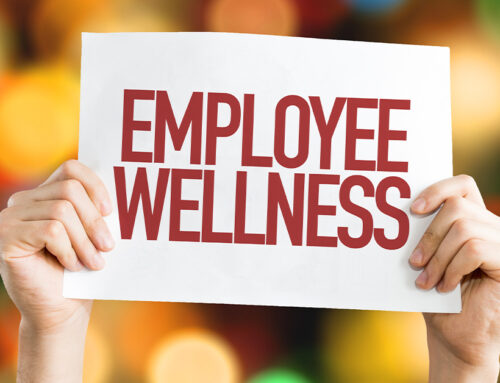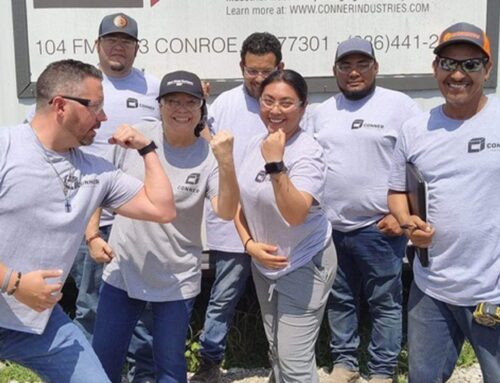Most manufacturing companies have probably had this internal debate about their pallet purchases – why buy new pallets instead of recycled pallets? After all, recycled pallets are often seen as the more economical solution. Unfortunately, there can be a lot of hidden problems with recycled pallets that you might not be considering in your decision.
Imagine that you’ve got a driver waiting to get loaded with pallets of your product to take to market. Your forklift driver raises a pallet loaded with product to put on the truck, but the recycled pallet splinters and falls apart mid-load. Not only do you have a big mess to clean up, but you’ve also got damaged products, a delayed truck driver, and additional time on the clock for your workers to get the mess cleaned up. What if your product involves something hazardous or dangerous? You could have an even bigger problem on your hands.
This kind of scenario is not unusual when recycled pallets are used. One board that’s been used too many times, or a stressed joint that’s never been fixed, can cause a recycled pallet failure. Let’s take a look at the reasons why manufacturers buy new pallets, instead of recycled ones, to ensure reliable shipping and protection of their products.
Buying New Pallets Gives You Consistent Quality and Construction
When you buy new pallets, you’re generally purchasing a batch of them from a single supplier. That means that your pallets should have consistent quality between them. The quality of the wood, the fasteners used, the specifications of the boards used in each, and the way they are constructed should be identical from pallet to pallet.
New wood pallets from a supplier are made from the same wood material, with the same board and stringer thicknesses, and the same fasteners and fastener placement on each pallet. The consistent quality of new pallets makes palletizing your product much easier because you have a predictable surface on which to place your products.
On the other hand, using recycled pallets can come from a wide variety of sources. You may not know how the pallets were previously used, what kind of products were placed on them, or how heavy previously palletized products were. All those factors can affect both the quality and construction of recycled pallets. Even if recycled pallets have been repaired, their specifications may be different among a batch of recycled pallets.
They may all be the same dimensions, but board thicknesses, fasteners, and nail placement will likely be different from pallet to pallet. That makes palletizing your product more difficult.
Buying New Pallets Ensures Their Strength
When you buy new pallets, you know that they’ve never endured the wear and tear of carrying a load across the country. If you use a good supplier, you know your pallets aren’t cracked under the surface of the deck boards or on the inside of the stringers where you can’t really see them. You also know that the pallets have been built to your specifications with and appropriate number fasteners, and the proper nail placement, for your particular product load.
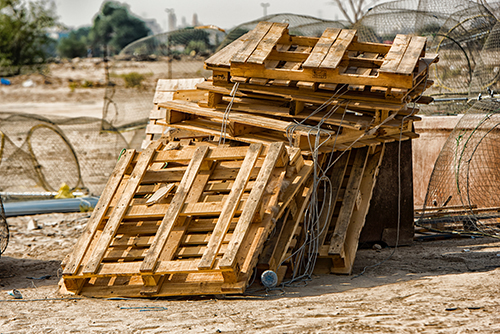 With new pallets, you know that they have the strength to support your loads.
With new pallets, you know that they have the strength to support your loads.
If you use recycled pallets, there may be cracks hidden from sight, even if they’ve been previously repaired. It’s also not unusual to have missing nails or poor nail placement, which can seriously diminish the strength of a recycled pallet. In some cases, a pallet recycler will make cosmetic changes to a pallet that actually do nothing to improve on its strength. These kinds of weaknesses may only come under scrutiny under the stress of a load or after a pallet completely fails.
Why Buy New Pallets? They Are Always Clean.
When you buy new pallets, you can be sure that they are clean and free from the kinds of contaminates that you may find on recycled pallets. Food spills, chemicals, and residue from previous products can lurk on recycled pallets, but none of those types of contaminates should ever be found on a new pallet.
For some manufacturers, having mold present on pallets is also a problem. When you buy new pallets, you can work with your supplier to make sure that your pallets are free from mold and stored inside to prevent mold from developing. On the other hand, pallet recyclers can’t guarantee that their pallets are mold free because at least some part of a recycled pallet was likely stored outside during the lifecycle of the pallet.
Most pallet recyclers are not able to track the history of their pallets so they can be certified or meet inspection standards. For things like ISPM-15, wood only has to be treated once to retrieve the stamp. There is a higher chance of infestation from recycled or refurbished pallets. When you buy new pallets, you know the stamp is effective for your needs.
You already know the history of a new pallet because it’s… well… new.
New Pallets Can Be Built to Spec
When looking to buy new pallets, the dimensions you need will be a big factor in your decision making. Here at Conner, our design and engineering team can look at your products and supply chain to choose the best packaging to fit your needs. We make looking for suppliers to buy new pallets an easier choice.
Many manufacturers only need a standard 48×40 pallet size, but if you need a custom sized pallet to best fit your product, then you’ll have to buy new pallets. While it’s possible that a recycler can build custom pallets for you, it’s not the norm, and it will probably cost you as much as a new custom-built pallet. If you need something with longer board lengths, then a recycler probably won’t be able to do it for you at all because they won’t have the recycled material on hand.
Besides, new pallet manufacturers make custom pallets and crates all the time. They have the expertise and skill to create what you need. A recycler may be able to do it, but it’s not generally in their wheelhouse. If you need something built to particular specifications, buy new pallets.
In Conclusion
New pallets have a lot of advantages over recycled pallets, from quality and strength to consistency and cleanliness, so why would anyone ever go with a recycled pallet? If your organization is considering recycled pallets, it’s likely a pricing issue.
It’s definitely true that recycled pallets are cheaper, but there can be hidden costs that are often overlooked. Poor quality, inconsistent construction, diminished strength against your load, and contaminates can all be a problem when using recycled pallets. The decision to buy new pallets or recycled pallets should be based on more than just price.
After all, what’s the cost to your organization when a recycled pallet fails?
The Conner Commitment
Conner Industries is here to help when you are looking to buy new pallets! As a leading producer of industrial wood and packaging solutions. Specializing in pallets, crates, skid parts, integrated packaging solutions, and other services. We are committed to meeting our customer’s needs.
We have thousands of different wood products, including custom pallets, wholesale lumber, panels, dunnage, banding groove, and pallet lumber. We have contracts with North America’s largest softwood producers, so that we can provide the best deal possible for our customers. Thus, providing you with anything and everything your business might need to get products where they need to go.
Don’t get overwhelmed when looking to buy new pallets, let Conner help you today!

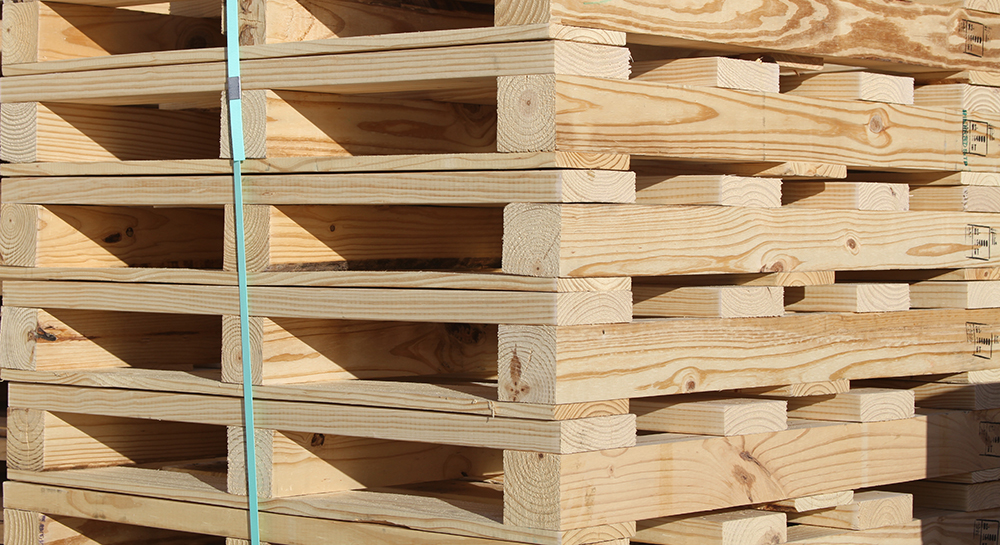
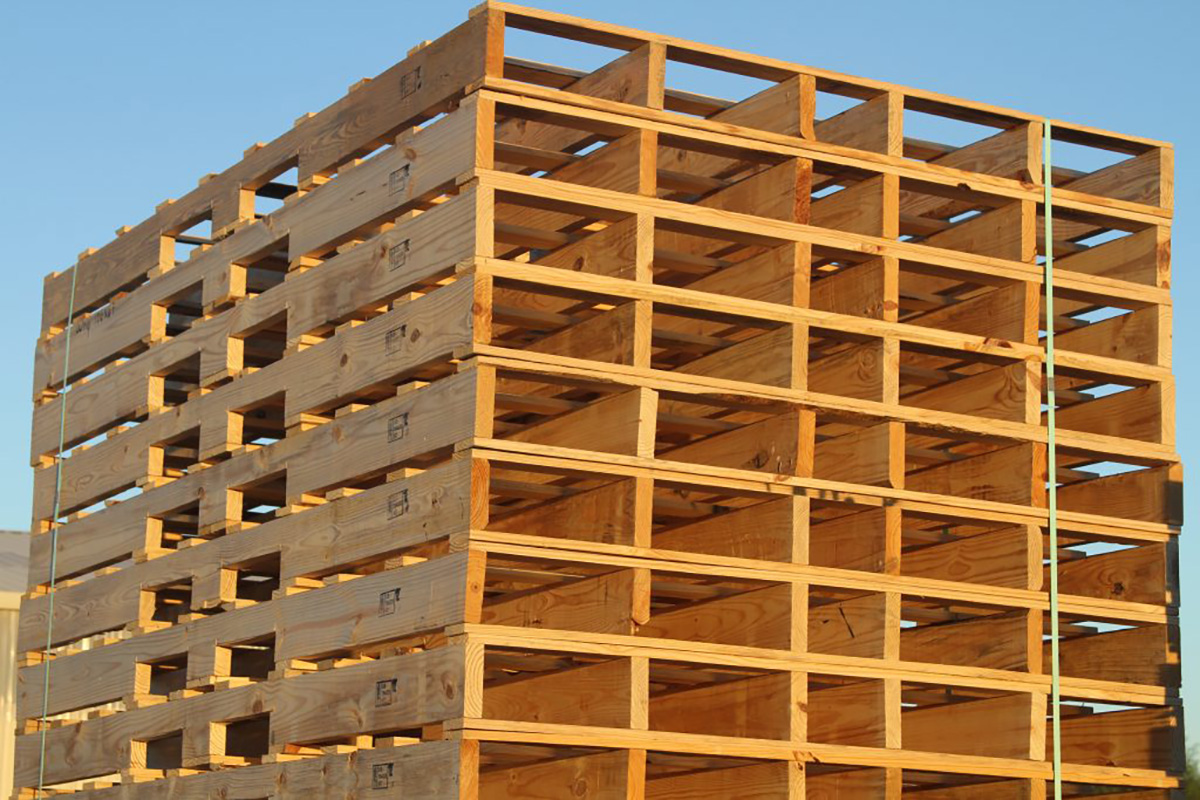
![[PRESS RELEASE] Conner Industries Announces Major Guardian Packaging Expansion](https://conner.b-cdn.net/wp-content/uploads/2024/10/Guardian-Packaging-Expansion-500x383.jpg)
![[PRESS RELEASE] Conner Industries Announces Website Dedicated to Integrated Packaging Division](https://conner.b-cdn.net/wp-content/uploads/2024/05/Conner-Packaging-Blog-500x383.jpg)

